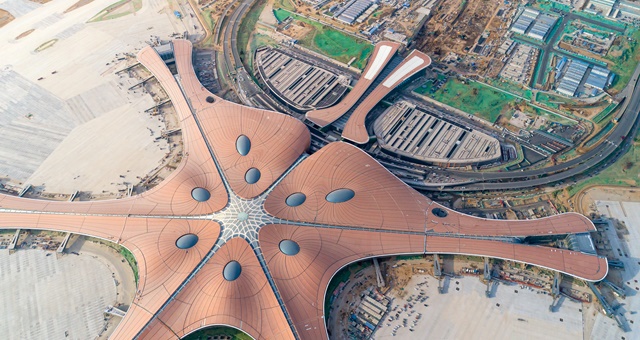
With 2018 now well behind us, the Asia Pacific hotel industry reflects on a broadly positive year and is powering ahead in 2019 with optimism.
Overall, the region continues to benefit from rising demand in business and leisure travel, driven by strong intra-regional demand. According to the latest data from the UNWTO, inbound travel grew seven per cent in the first half of the year – faster than the global average. Southeast Asia recorded the strongest results, with an increase of nine per cent in international visitation.
In terms of business travel, GBTA projects that India and Indonesia will be the world’s fastest growing markets over the next five years, while China will consolidate its place as the world’s biggest business travel market. Asia Pacific’s MICE industry is also expected to witness the world’s highest growth rate of +8.6 per cent by 2023, driven by China, India and Singapore, according to Allied Market Research.
These underlying trends are driving positive performance in the hotel industry. According to STR, region-wide occupancy averaged above 70 per cent in the first ten months of 2018, and revenue per available room (RevPAR) increased by 2.5 per cent – a healthy result.
Challenges remain, however. Following several recent high-profile incidents, cybersecurity will likely become a priority for hotel groups. The hotel industry at large, also continues its battle to reduce its reliance on third parties by striving to drive more direct bookings. The approach relies on personalisation of travel, driving loyalty and enhancing guest experience, which are all key focus areas for Radisson Hotel Group.

This year will see the launch of our pioneering integrated technology platform EMMA, which will be a key enabler in providing these enhancements for our hotel guests. Rising room supply may become a challenge in certain markets, but not everywhere – for example, in Bali, additional room supply is being matched by rising demand.
We are still not seeing the full impact of long-predicted challenges of the “disruptors”. Accommodation sharing sites like Airbnb have successfully carved their own slice of the market, but this has not come at the expense of the internationally branded hotel business.
For destinations in Asia Pacific, the key feeder markets of China and India are already changing the tourism landscape, and this will continue for the foreseeable future. According to the UNWTO, China – already by far the world’s largest outbound market – reported sustained spending in the first half of 2018, while India also experienced strong growth. It is worth noting that fewer than 10 per cent of Chinese or Indian citizens currently hold passports. As affluence rises and these vast Asian populations start travelling in greater numbers, the impact on regional tourism is anticipated to be unprecedented.
The Asian aviation sector is similarly soaring; IATA predicts that China will replace the USA as the world’s largest aviation market by 2024, with India rising to third place a year later. China, India and Indonesia combined are forecast to add over 1.2 billion air passengers by 2035 – many of whom will fly on low-cost carriers. This will create significant opportunities in all sectors of the hotel industry.

In alignment with these underlying trends, Radisson Hotel Group’s Asian expansion strategy is focused on these key markets: India, China, Indonesia and other promising destinations such as Vietnam. In India we signed eight new hotels in 2018, and in China we recently opened new Radisson hotels in Suzhou and Ningbo and a Radisson Blu in Zhengzhou. In Vietnam, Radisson Blu Resort Phu Quoc marked our debut in the country while in Indonesia, we opened Radisson Blu Bali Uluwatu and Radisson Medan. In a strategic move, we also took full control of our Indonesian joint venture, which will enable us to accelerate our development in this promising market.
Our growth will continue in 2019, with acceleration in China as we introduce more of our brands into exciting new markets. Radisson RED, our energetic lifestyle brand, will launch in India, Bangladesh and the Philippines, while Park Inn by Radisson will arrive in Thailand and Malaysia. We will introduce Radisson and Radisson Blu to Wuhan, the major metropolis and high-tech business hub in central China. With buoyant regional economies, expanding air links, lower barriers to travel and rising affluence, the travel industry in Asia Pacific is currently cruising.
Radisson Hotel Group, with its strong regional presence, refined brand architecture, and clear market strategy, underpinned by a brand-new technology platform in 2019, is perfectly poised to capitalise on these bright market conditions. We anticipate exciting opportunities in 2019 and beyond, as we embark on a period of accelerated and strategic growth across Asia Pacific. Our guests can look forward to enjoying Radisson Hotel Group’s world-class hospitality in even more Asian destinations in future.

